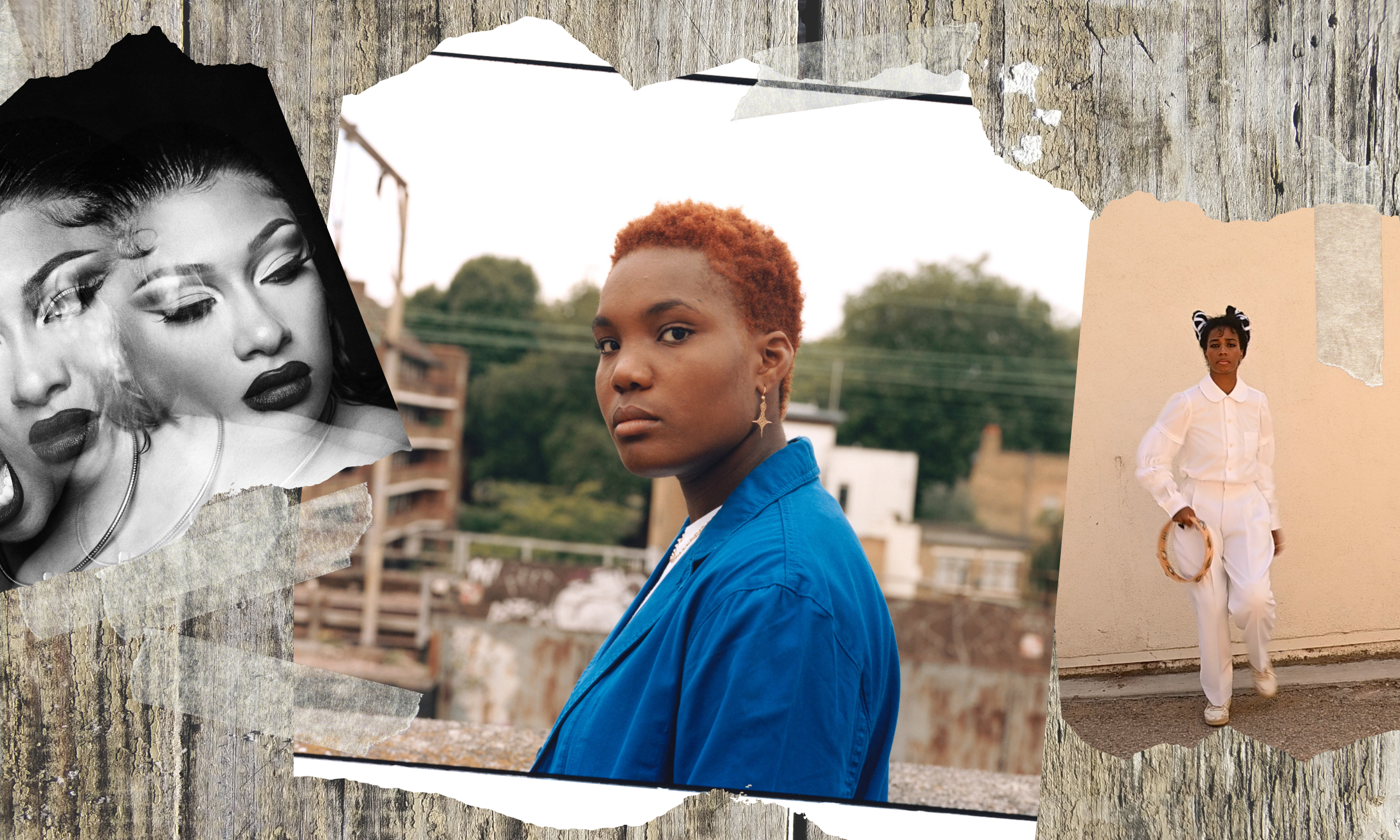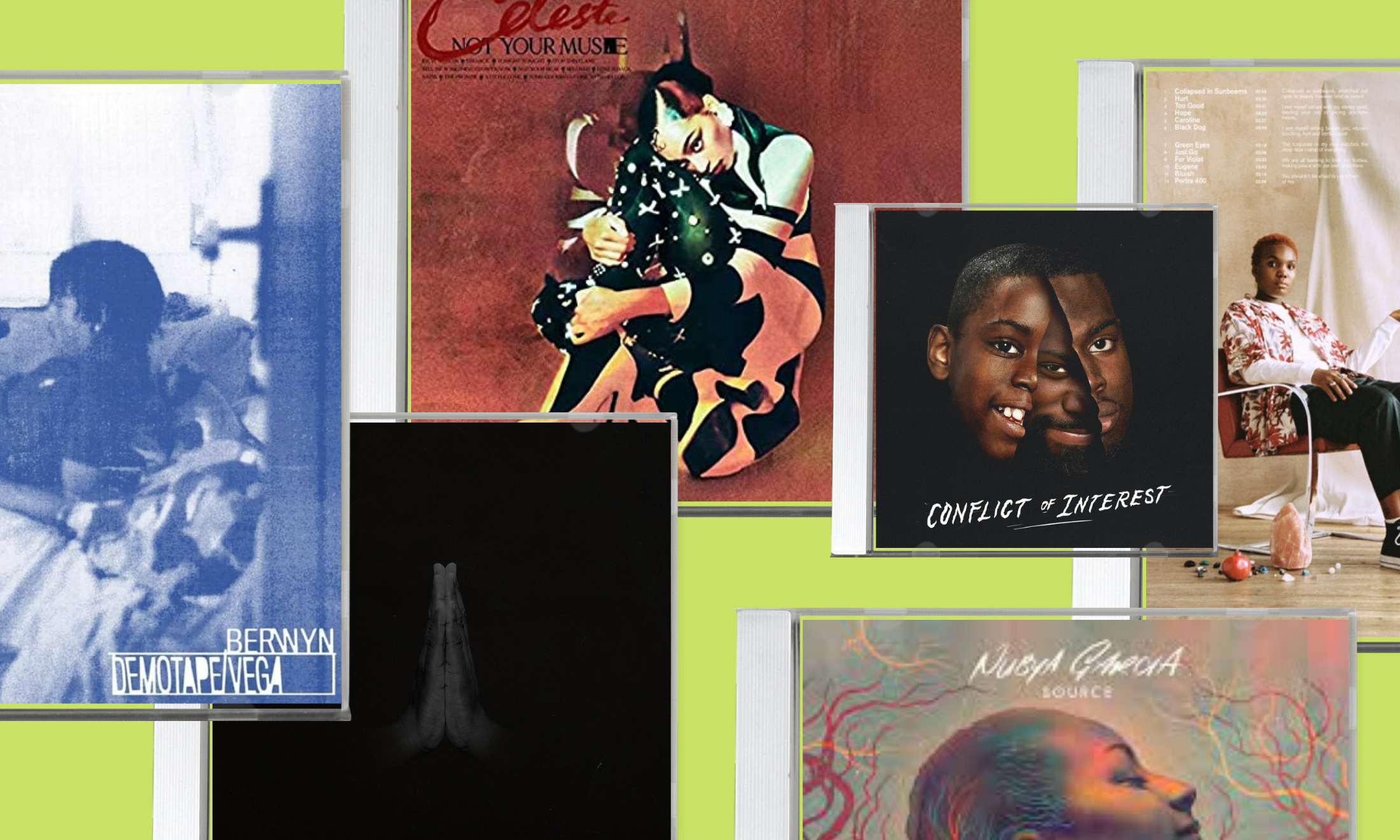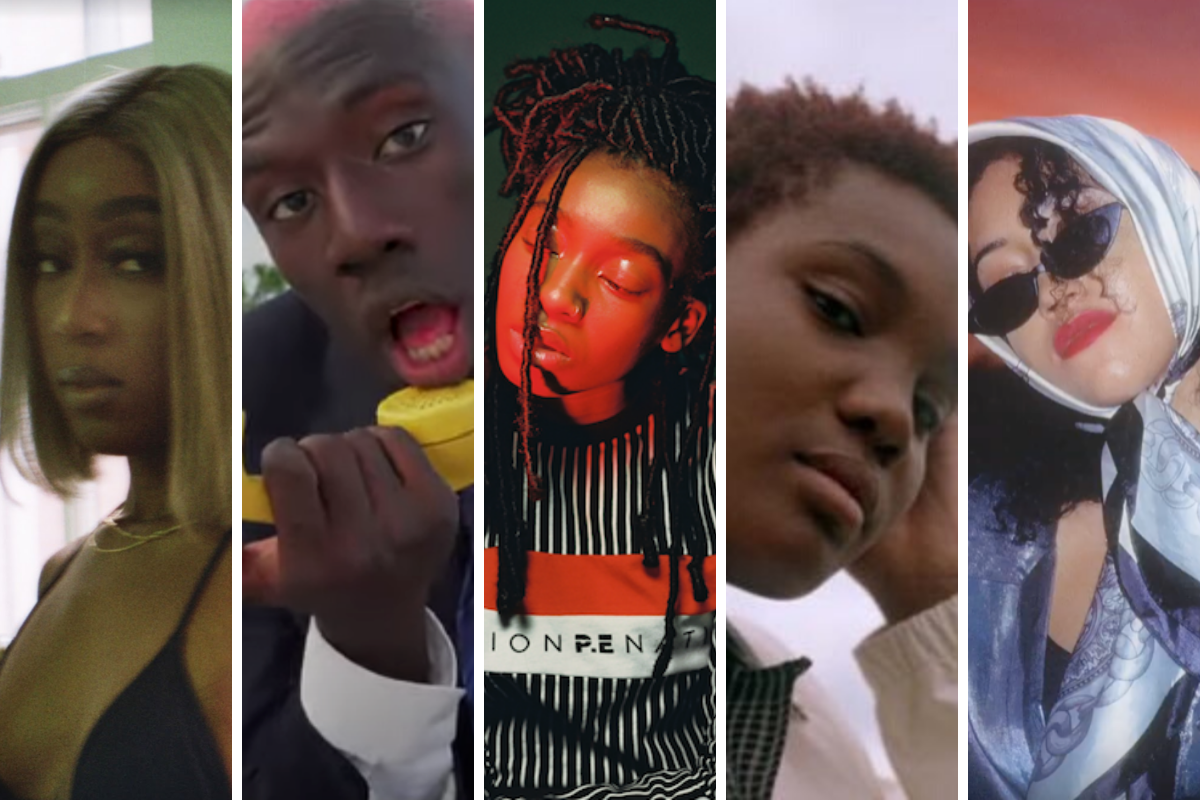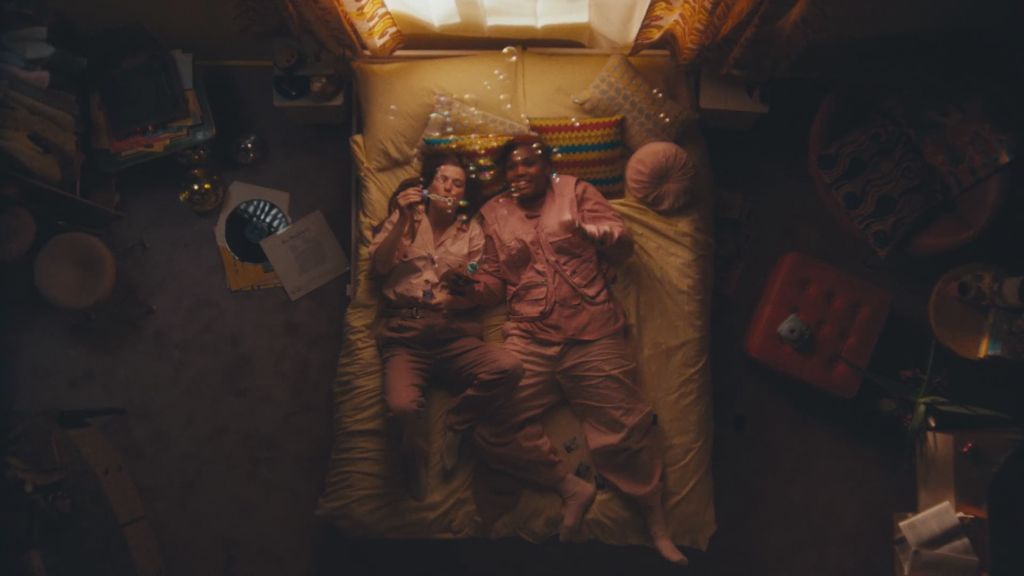‘I hope that people see their own stories in it’ – Arlo Parks wants her album to move you
Ahead of delivering one of the most anticipated British debut albums of recent years, 20-year-old Arlo Parks talks poetry, sexuality and... her emo phase.
Jasleen Dhindsa
23 Jan 2021
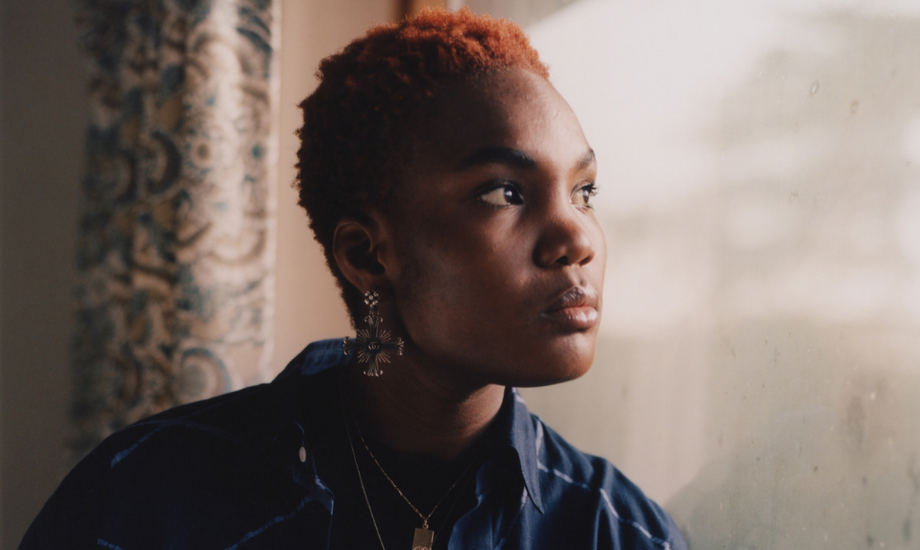
Alex Kurunis
Arlo Parks is as complex as she is uncomplicated.
“I definitely think that my purpose in the world is to try and spread light in two different ways,” she says over the phone. “In one way being honest with myself and shedding light on the darker corners of myself and trying to bring a sense of healing and joy to people.”
The 20-year-old south-west London artist is making waves across the globe with her tender brand of lo-fi indie, that makes the hyper-specific universal, the most detailed and personal anecdotes enthrallingly relatable. Her work captures life’s most achingly beautiful moments and transcends divisions in the process.
The singer-songwriter has amassed millions of streams worldwide, made fans of pop elites Billie Eilish and Florence Welch, was selected as part of BBC Music’s Sound of 2020 longlist (as well as gal-dem’s 2019 ones to watch) and was one of only three artists to perform at Glastonbury last year. Despite her successes to date, Arlo’s highly anticipated debut album only arrives this week. Titled Collapsed In Sunbeams, the record is a melting pot of 12 luscious tracks venturing from bedroom pop to neo soul, with jazz and hip-hop in between. It’s all laced together with intricate synths that are the result of someone fixated on delving into an immense musical catalogue.
“I definitely have struggled with self-doubt and imposter syndrome”
A self-confessed loner growing up, Arlo wasn’t like her peers. She didn’t really watch TV, instead preferring the French films recommended by her parents (she is Nigerian, Chadian and French), all while soaking up literature and writing. She was writing stories from the age of seven, later transforming into poetry from around 12 – which is now a staple fixture in her artistry.
Arlo first picked up the acoustic guitar when she was 13 and started using GarageBand to make beats and experimenting with spoken-word. “That just morphed into singing, but writing has always been something that I’ve done, ever since I can remember every single day,” she says.
Music had always been a hobby for Arlo until, in summer 2019 while still in school, she signed to Transgressive Records, a label home to some of her favourite artists including Flume and Foals. “That moment when I first signed I definitely felt like this is something real,” she reflects, “I definitely have struggled with self-doubt and imposter syndrome. I think over time moments like that just slowly reinforced the fact that this is a real thing.”
For someone who has only been alive for two decades, Arlo’s perception and sensitivity matches that of a person four times her age. Her innate predisposition to vulnerability is invigorated by the poets she loved as a teenager, whose emotional intelligence parallels hers.
“I immediately threw myself into poets that I found to be confessional. Those pieces that are so raw and deep-rooted and unflinching”
“I immediately threw myself into poets that I found to be confessional,” she explains, “Those pieces that are so raw and deep-rooted and unflinching. In terms of my favourite poets, the Beats: Allen Ginsberg, Gary Snyder, William S. Burroughs. It just felt like the way they were writing was just an outpouring of emotion and rage. I really love the idea of poetry not necessarily having to be something that had structure, or that was ancient and impenetrable. I like the fact that it was modern and exciting. I remember reading James Baldwin’s [novel] Giovanni’s Room…I love that idea of creating art that felt really human and it was really focused on small details.”
At age 17 Arlo shaved her head and came out as bisexual (“It’s just something I’ve always known”). Though citing several feminist black lesbian poets (Pat Parker, Adrienne Rich, Audre Lorde) as staples of her literature diet, representation for Arlo felt sparse – “Other than that I didn’t really see myself in any of it,” she says, “Maybe I just wasn’t looking in the right place.” It’s a poignant thought, given she is now heralded a representative force for queer people of colour.
“I was lucky enough to have a family that was very warm and accepting, and it was never really a big deal,” she says, “I know that’s not the story that many people can say, but for me, it was very much organic. I didn’t really feel a massive shift…it didn’t feel like my life had changed or anything. It was just vocalising it. I just felt like I was being completely myself, and that came with a sense of confidence and comfort…especially when kids will come up to me and say ‘I see myself in you, and somebody who looks like me making music like you do is really inspiring’. Being able to provide that kind of representation. I guess I had Syd from the Internet, that was my version of that. But there wasn’t really a wide range, especially in alternative music. So it’s amazing to be that for other people.”
Indeed, Arlo has been hailed as the voice of her “super sad generation” (which also happens to be the title of her debut EP). As a flourishing Gen Z poet in the digital age, she uses social media to frequently share her musings. “Personally I don’t really read much of it,” she says about the new wave of Instagram poets, “I know a lot of people are like, ‘this isn’t really poetry.’ But things like this are entry points for younger people who didn’t really enjoy it at school. Having bite-sized pieces to consume is positive. It’s more accessible, and kids are reading poetry again!”
Arlo’s own poetry is imbued in sensory delights, with vivid descriptions of nature becoming her signature mark. The same is echoed in her lyrics, where ginger and hibiscus rub shoulders with turquoise and amethysts (“You twist violets in my eyes” she yearns on ‘Bluish’).
“Those words just seem very beautiful to me,” she says, “I love using colours, textures, fruits and scents. I’m a very sensory person and a very visual one. I feel quite connected to nature…I do feel happiest when I’m walking through somewhere green. I just enjoy how the words sound. I love to have crystals in my room. Not necessarily because I think they have powers, I just like the way they look and feel. [It’s] me just trusting my tastes.”
These images illuminate the soft vulnerability of Arlo’s work, with her album addressing raw realities including mental health, love, sexuality, hedonism and youth.
Collapsed In Sunbeams was written in lockdown last year with her producer, Luca Buccellati. The two rented an Airbnb in east London where the majority of the album was recorded, providing a concentrated environment in which Arlo’s virtuosity truly flourished – including honing in on her skills, producing a handful of songs on the record herself from demos recorded in her bedroom.
“Making the album, essentially we sat in an Airbnb for two weeks and ate pasta and made music nonstop”
“Essentially, we sat in there for two weeks and ate pasta and made music nonstop,” she says, “We were listening to such a range [of music], one day it would be The Beatles or Bright Eyes. Another day would be James Blake or Solange, and then Massive Attack or NWA. We were just trying to immerse ourselves in a world and pick our favourite bits. For me the drums were kind of the most important thing on the record…so much of the music I like, whether it’s krautrock or weird electronic music, it’s all about the drums. I think that really carries the energy of it.”
The breadth of Arlo’s musical disposition harks back to her childhood, she explains, “There was a lot of jazz, a lot of soul and a lot of eighties French pop, that’s what I grew up on. [Then] my uncle gave me his record collection which was a lot of Bob Dylan, Tracy Chapman, and I was listening to a lot of Arctic Monkeys. That did morph into My Chemical Romance, and Good Charlotte,” she laughs, “I had a little emo phase.”
Over the course of our conversation, she also namechecks everyone from Nirvana to Nina Simone, via King Krule, Portishead and Frank Ocean. “I grew up with YouTube, so I would just go down these YouTube wormholes […] My group of people that I hung around with weren’t particularly creative, so looking for new music and writing was definitely something I did as a private, personal thing.”
From the throwback 90s-sound on the neo-soul bop ‘Too Good’ to the trip-hop laced, soft electronics on ‘Bluish’ and ‘For Violet’, Collapsed In Sunbeams paints a delicate picture of ubiquitous realities. Whether it’s addressing depression on ‘Black Dog’, the intricacies of queer relationships on ‘Green Eyes’ or relationship dissolution on ‘Caroline’, Arlo’s music is a bittersweet and intimate, almost tangible sonic ombre that shifts effortlessly from dawn to dusk.
“I’m proud that I went to a lot of different places sonically and I pushed myself,” Arlo gleams, “I hope that people see their own stories in the album. I hope that people feel moved, I hope people dance to it. I just want people to be affected by it, I think the worst thing would be a sense of apathy. I think because the album explores so many different kinds of emotions and scenarios, I just want people to feel something.”
Arlo Parks’ debut album Collapsed In Sunbeams is out on 29 January via Transgressive.

